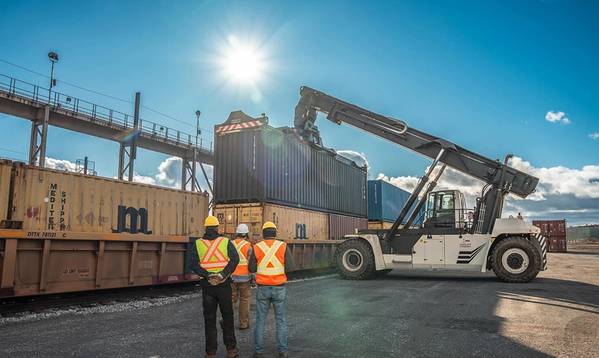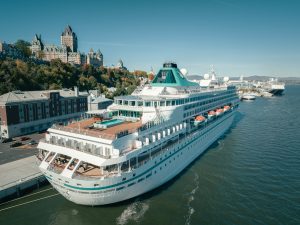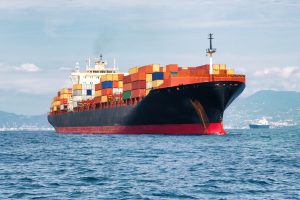The Ontario Marine Council (OMC) represents the marine supply chain in Ontario, including ports, marine operators, shipyards, and terminal operators. In Ontario, the marine industry supports more than 67 000 well-paying jobs and generates more than $9 billion in economic activity yearly while transporting crucial material for key industries including iron and steel, construction, agriculture and the transportation sector.
The Canadian marine industry is known for its important work delivering dry and liquid bulk cargo across the Great Lakes, the St Lawrence Seaway and beyond to world markets. In recent years, several of our members, including the Hamilton-Oshawa Port Authority (HOPA) and Picton Terminals have faced similar challenges to those of the Salaberry-de-Valleyfield terminal, as described in a La Presse newspaper article.
The OMC believes that granting ports the appropriate level of rail and/or marine customs clearance capacity is essential for maintaining Canadian supply chain functionality, especially in those cases where ports, their regional shippers and industries have been calling for more service.
These ports can all contribute to growing the Canadian economy, fostering resilience in the supply chain, and expanding crucial industrial zones that create long-term economic strength, while benefiting from the lowest carbon footprint of all transport modes – the marine mode.
The OMC welcomes collaboration with the Canadian government and the Canada Boarder Services Agency (CBSA) to find innovative ways to clear and process containerized cargo. As our US counterparts have been developing and expanding their presence in this region in recent years, we find ourselves at a competitive disadvantage.
“Recent investments made by Transport Canada with its National Trade Corridor Fund to bolster container handling capacity of Port Authorities should be serviced by the CBSA to handle the containerized cargo targeted by the initial investment,” said Steve Salmons, OMC Chairperson.
“We believe there is an economic and environmental case to be made for granting access to the local delivery of containerized cargo across the Great Lakes. The Canadian government should look to innovate in its service delivery to businesses instead of blocking the expansion of local enterprises,” affirmed Maguessa Morel-Laforce, OMC Executive Director.
(HOPA photo of Hamilton container activity)








